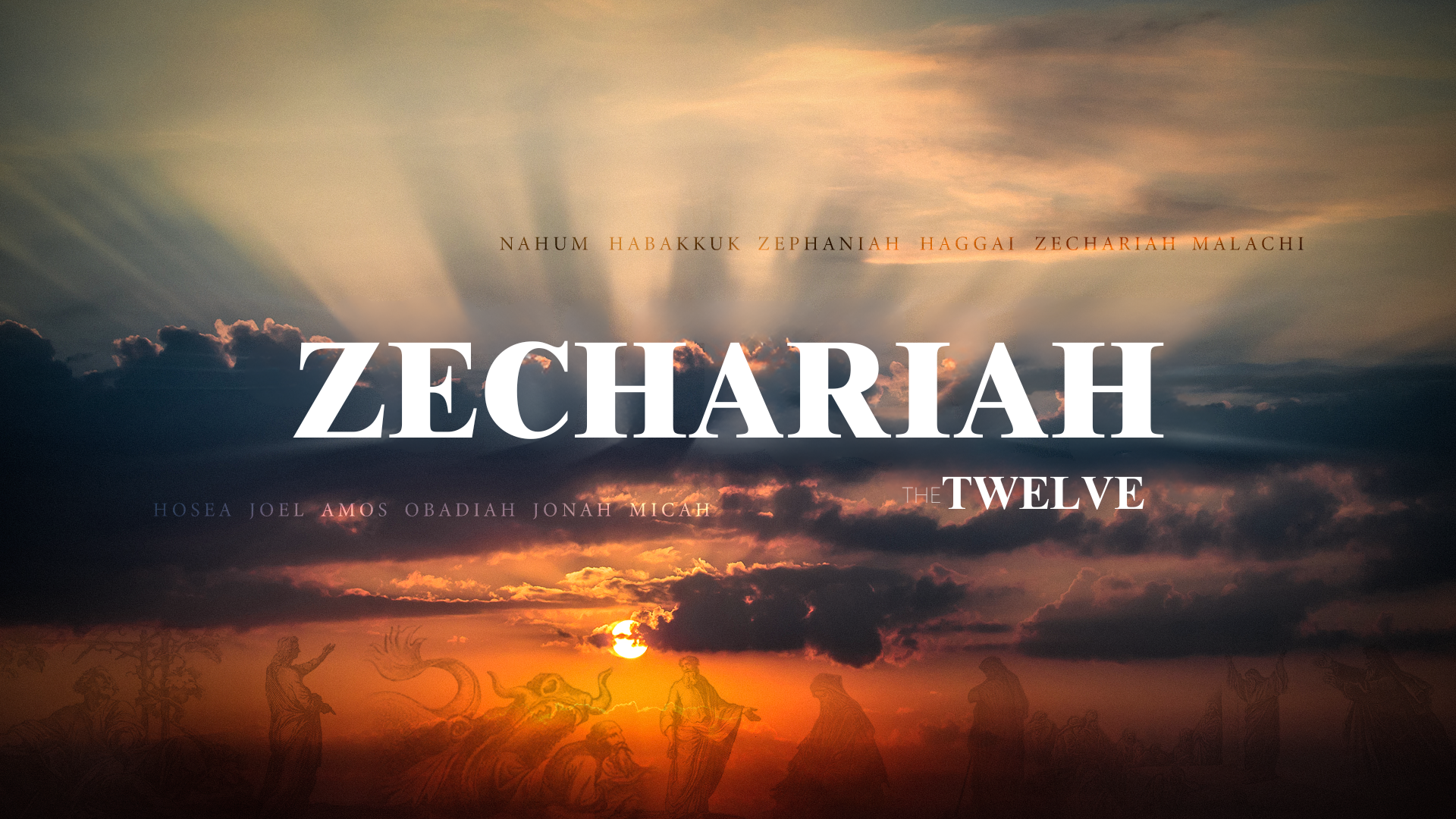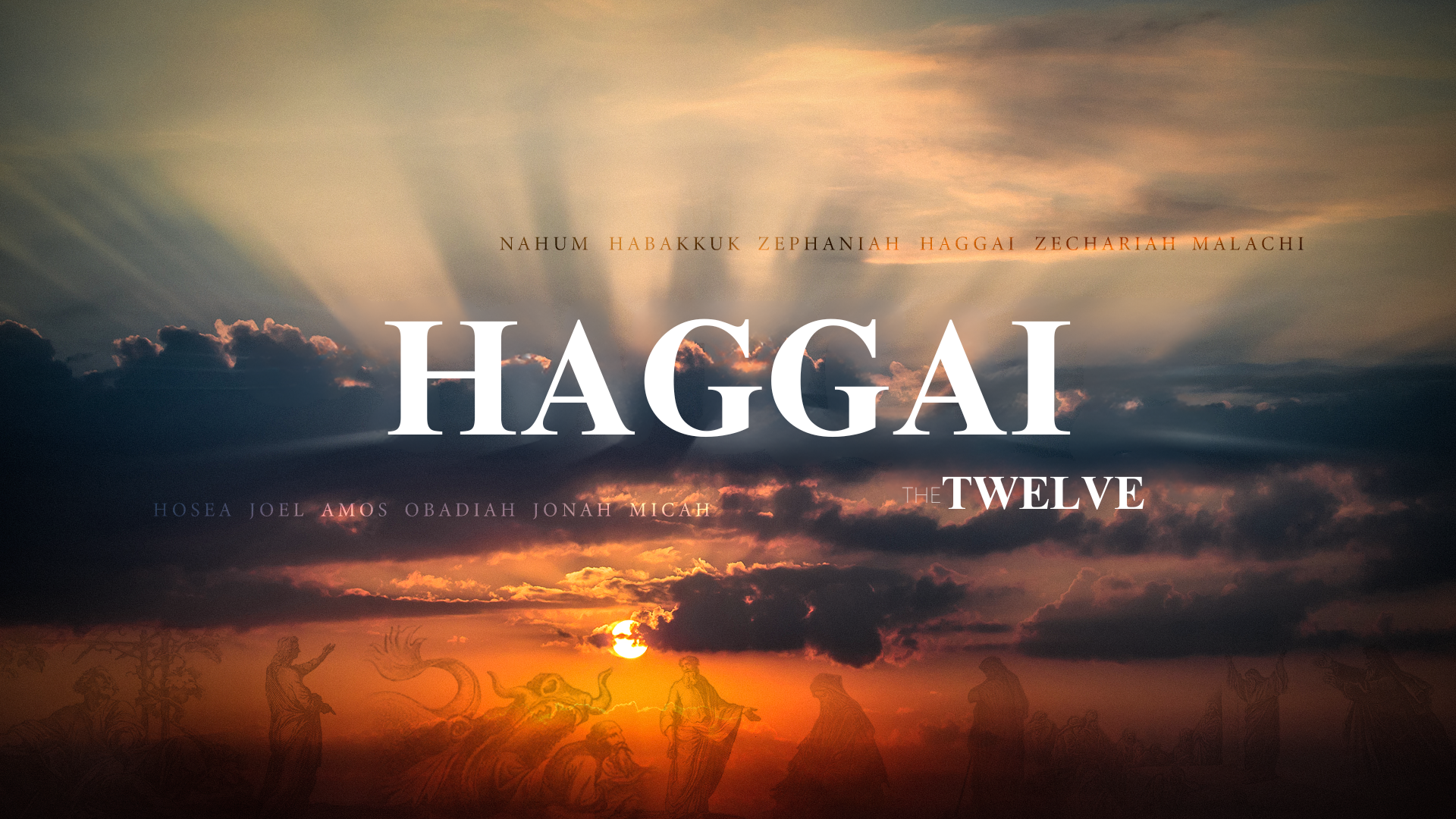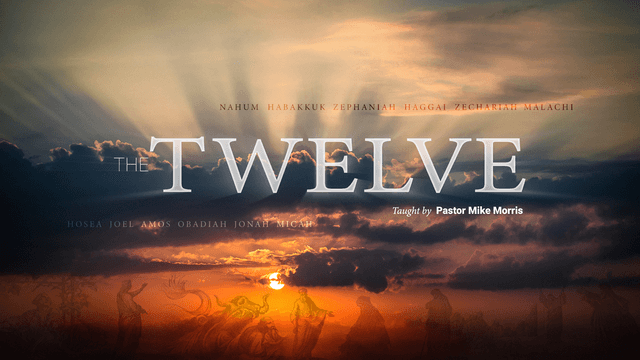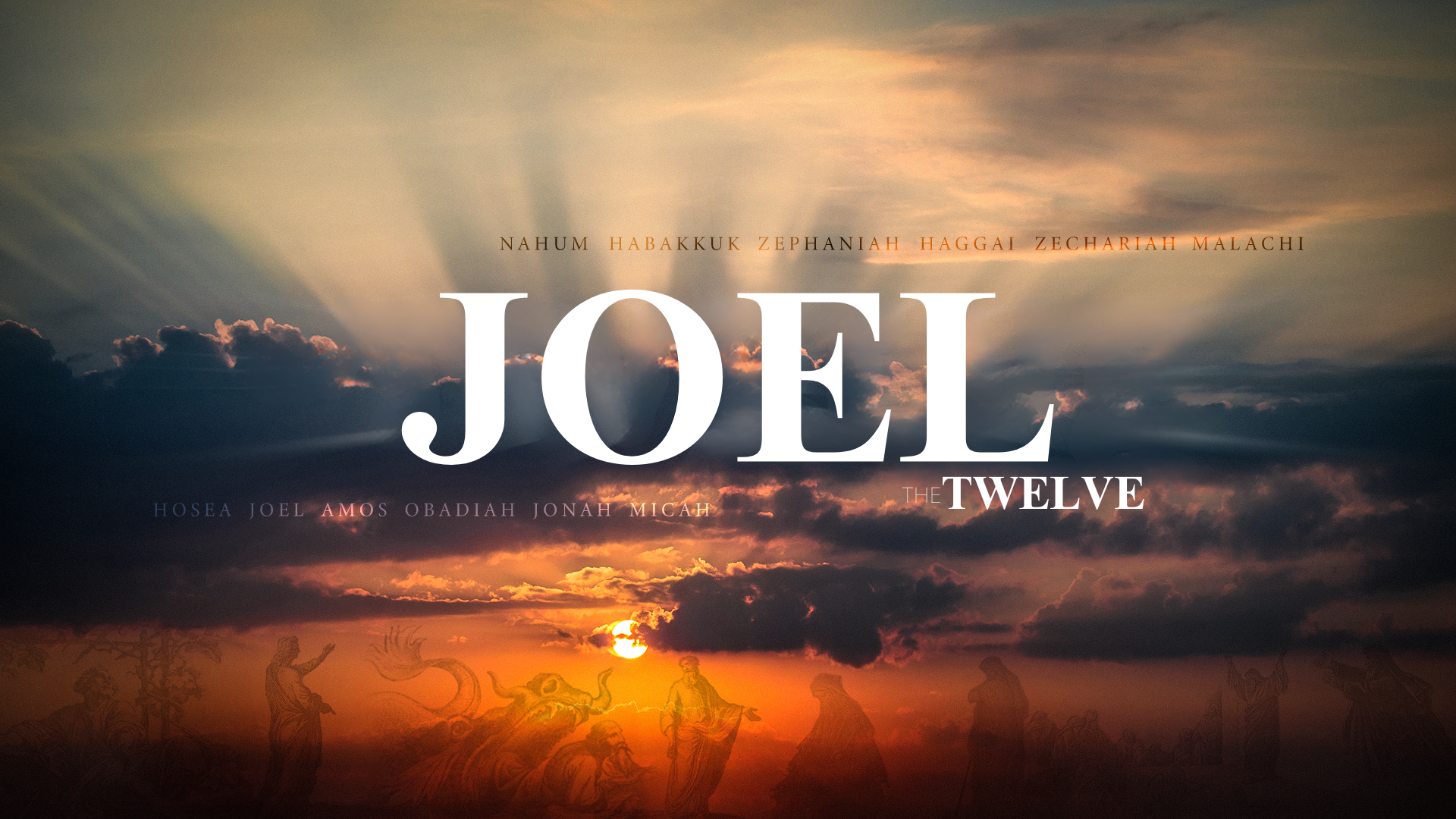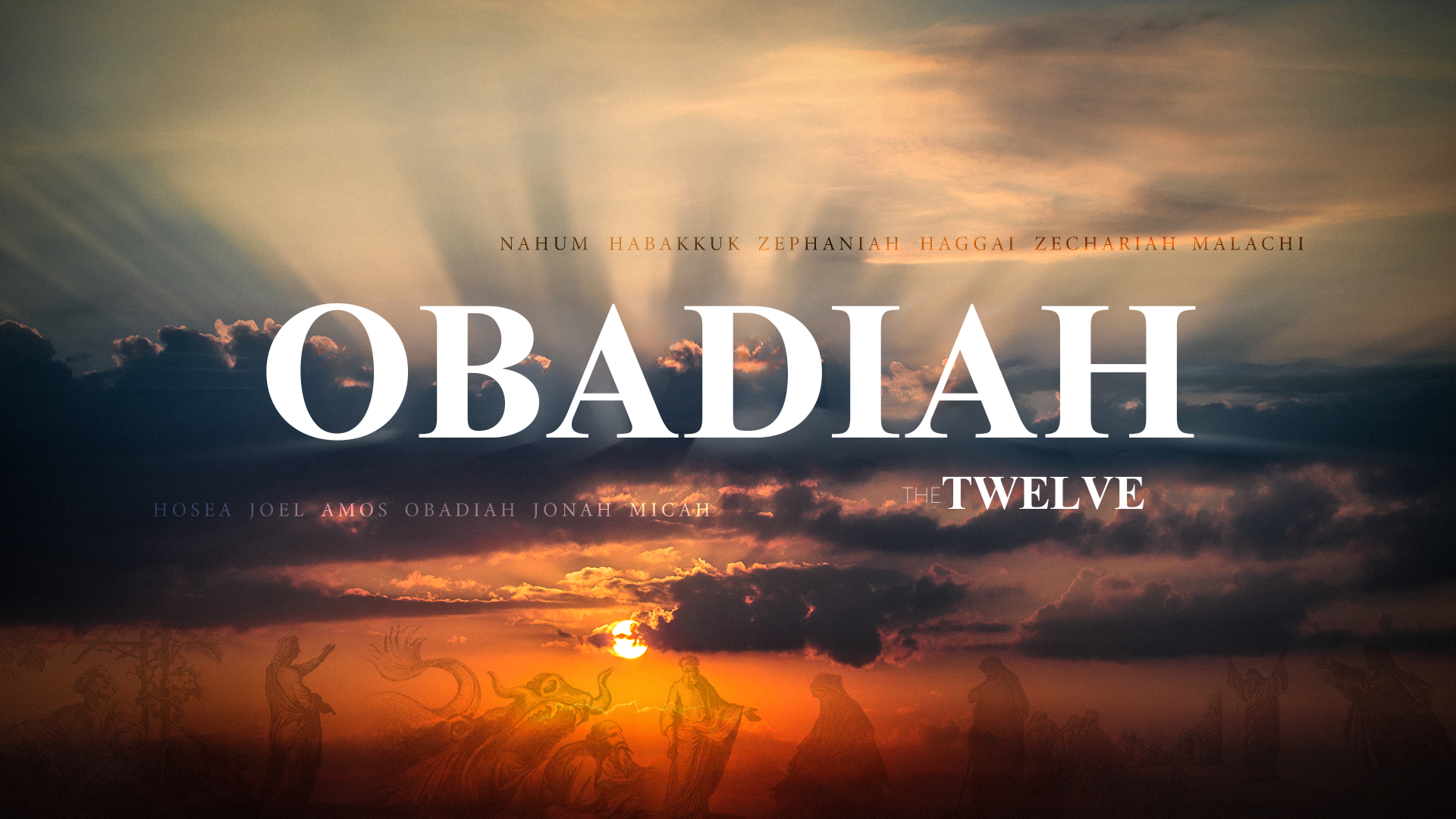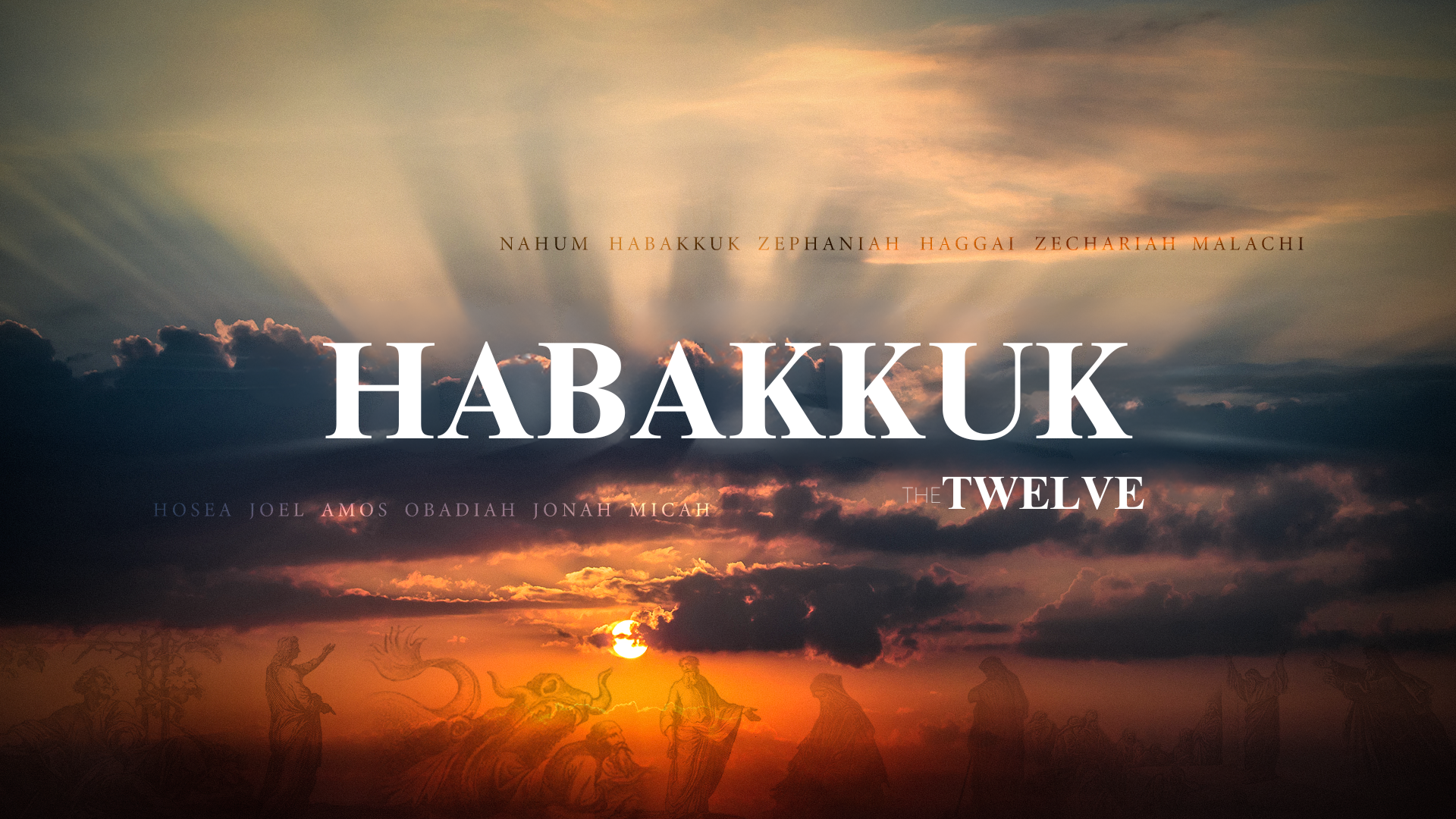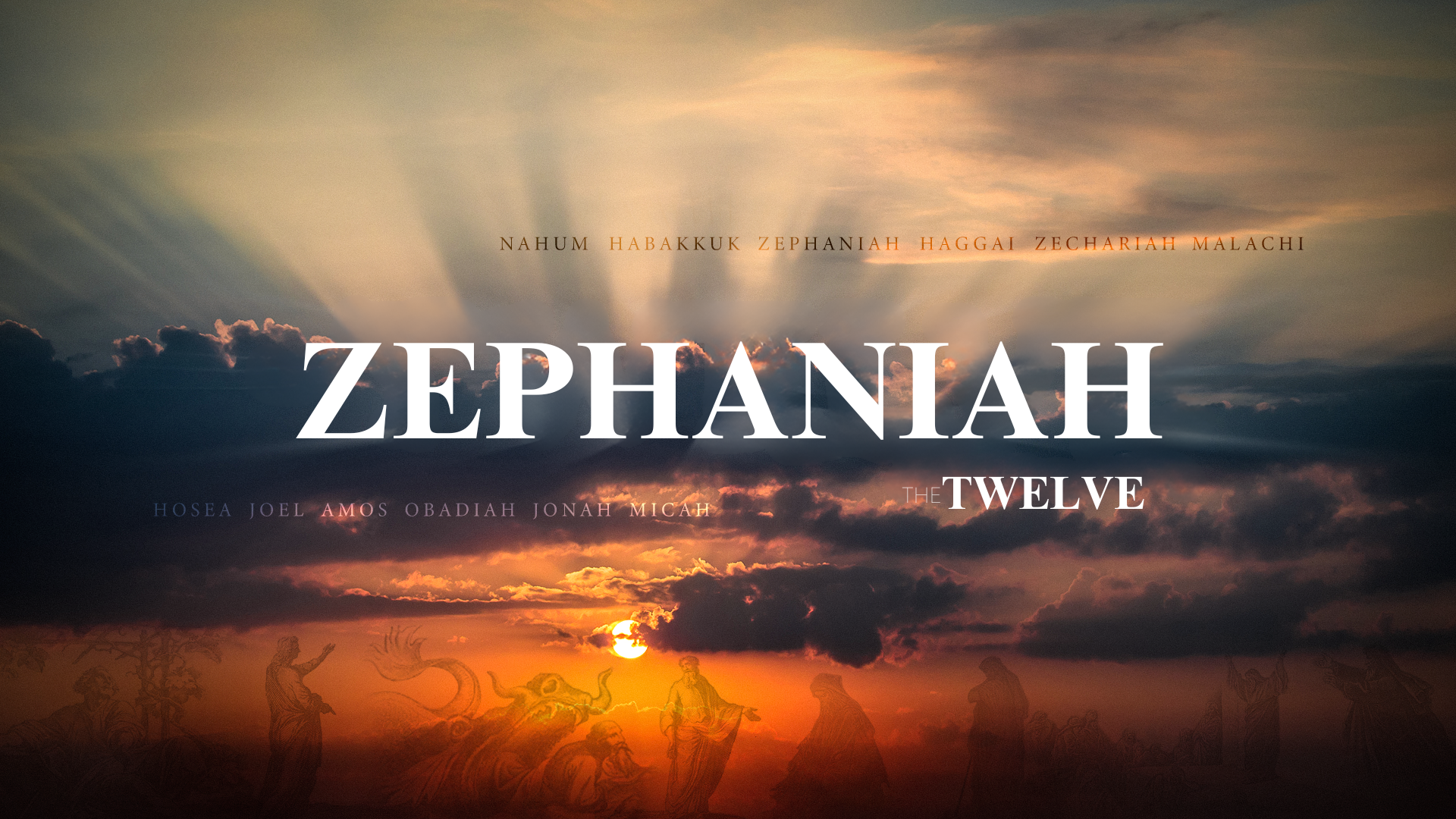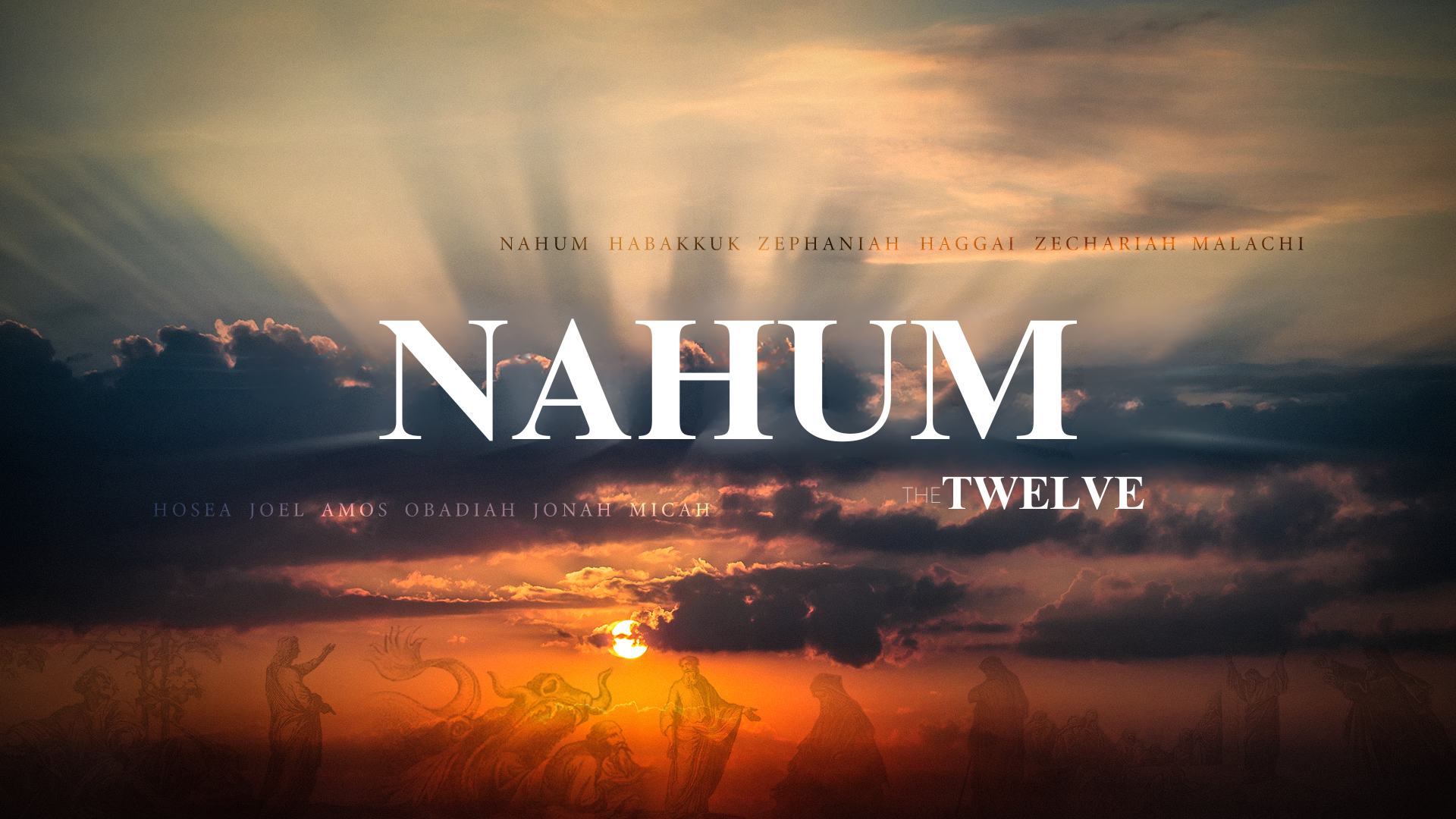INFO
MINISTRIES
TEACHINGS
CONNECT
Sunday Service 9am & 11am
Wednesday Service 7pm
(210) 920-6502
551 E Nakoma St.
San Antonio, TX 78216
MANUSCRIPT
Today we begin a new prophetic book of the Twelve, the book of Hosea...third in the chronological order of the prophets to the northern kingdom
As we begin, we’ll consider this prophecy in the context of the time and space of the nation of Israel, their kings, the spiritual condition and the political upheaval of the nation in the period just prior to the Assyrian conquest and the deportation of a great majority of the people to the most distant reaches of the Assyrian Empire...
We’ll look at the author, the time of the writing of the prophecy, the setting, the theme of the book, and the challenges we face as we consider this very unique prophetic narrative...and I need to tell you up front that there will be frequent mention of and discussion of topics such as prostitution and sexual infidelity...parents, please be aware and sensitive to the text...reading it ahead of time would be a good idea...
Let’s jump into the text at chapter one verse one...
The word of the Lord that came to Hosea, the son of Beeri, in the days of Uzziah, Jotham, Ahaz, and Hezekiah, kings of Judah, and in the days of Jeroboam the son of Joash, king of Israel.
We’ll examine the author first...so what do we know about the prophet, Hosea?
The short answer is, “not much” -- other than his father’s name, which we can’t even link to a tribal identity, we know next to nothing...we don’t know where he was from, how old he was, what he did before the Lord called him as a prophet, the extent of his education, the circumstances or time of his eventual death, whether he was politically connected as Isaiah was, or not connected at all, such as Amos...we do know that his name, Hosea, means “may Yahweh save”...he was a faithful prophet, perhaps the only one who both lived in and prophesied to the northern kingdom...
There are some conclusions about him we can draw from the content of the book...he was an intelligent man and a skilled writer...and while the Hebrew of this book is as challenging as any in the Old Testament to translate, it nevertheless presents as a literary unity, and the work of a single author...and Hosea demonstrates that he has a great depth of knowledge of the Hebrew scriptures, including the history of the period of Joshua and the Judges...the book appears at first glance to be a little jumbled, cobbled together and disorganized...but that’s just at first glance...a closer examination will show us a carefully crafted narrative given by the Spirit to the prophet, and then to the ages as a part of the Word of God
We know more about the period of history in which he lived and ministered -- the chaotic years just before the fall of the northern kingdom...the first verse allows us to date the book with a high degree of precision...we know from history that Jeroboam II reigned from 793 BC to 753 BC, or 41 years...and Hosea 1.1 tells us that he ministered during the reigns of four of Judah’s kings...Uzziah, Jotham, Ahaz, and Hezekiah...those are listed in chronological order, with Hezekiah being the latest...
We know that Hezekiah’s reign was from 716 BC to 686 BC...so if Hosea ministered during both Jeroboam II’s reign which ended in 753 BC and Hezekiah’s reign in Judah which began in 716 BC, then we can know that Hosea had a remarkably long prophetic career, approximately 760 BC to 710 BC, or close to fifty years...which adds one very interesting note to this -- Hosea personally witnessed the destruction of Samaria and the Assyrian exile in 722 BC
It appears Hosea wasn’t inclined to mention the final six “kings” of Israel, for good reason...after a quick succession of assassins, Hoshea was the last Israelite king in the north...all were terrible and not worthy of the title “king”...and a likely part of the reason for naming only Jeroboam is that his house is named in chapter 1 verses 4 and 5 in terms of a coming judgment...Hosea 1.4-5
4 And the Lord said to him, “Call his name Jezreel, for in just a little while I will punish the house of Jehu for the blood of Jezreel, and I will put an end to the kingdom of the house of Israel. 5 And on that day I will break the bow of Israel in the Valley of Jezreel.”
We see the fulfillment of the prophecy of II Kings 15.8-12
8 In the thirty-eighth year of Azariah king of Judah, Zechariah the son of Jeroboam reigned over Israel in Samaria six months. 9 And he did what was evil in the sight of the Lord, as his fathers had done. He did not depart from the sins of Jeroboam the son of Nebat, which he made Israel to sin. 10 Shallum the son of Jabesh conspired against him and struck him down at
Ibleam and put him to death and reigned in his place. 11 Now the rest of the deeds of Zechariah, behold, they are written in the Book of the Chronicles of the Kings of Israel. 12 (This was the promise of the Lord that he gave to Jehu, “Your sons shall sit on the throne of Israel to the fourth generation.” And so it came to pass.)
The date of the writing of the book is uncertain, within the range of the years of Hosea’s ministry...scholars have not been able to reliably link events mentioned in the book with historical events, so we are still unsure of exact dates, but based on the major kings’ reigns, we are reasonably sure of the range
Another noteworthy feature of Hosea is the degree to which he depends on the Pentateuch, the first five books of the Old Testament, as the foundation for his writing...allusions to these books abound throughout the prophecy
Structurally, Hosea is a difficult book to outline or analyze...we’ll work our way through it as we go, but in broad terms, it is written in three general parts: chapters 1 through 3, chapters 4 through 7, and chapters 8 through 14...throughout, comparisons are drawn back and forth between Yahweh and Hosea, and the speech repeatedly shifts from first person to third person
I know many of you do outside study, especially when we tackle a new book, and when you start to look into this book of Hosea, you’ll likely find what I found: widespread disagreement about how to understand and interpret this book...some see it as a literally true historical narrative...others see it as a parable or allegory developed by the prophet to picture the love of God for the wayward nation, including John Calvin...many try to understand it as symbol only, especially Gomer and her adultery...many also try to make sense of chapters one and three from a point of view other than what the text says on its face
I will approach this book from the perspective of the narrative being a true historical story; as unlikely as it seems that God will instruct his prophet to marry a prostitute and through her to father children, that’s what the text says, so that’s how we must seek to understand it...there is surely symbolic meaning in the narrative, but that doesn’t mean the narrative is untrue...it is true and symbolic in much the same way that a stop sign is a true, real object, but also has symbolic meaning...even without the word “stop” we know what an eight-sided metal sign painted red with a white border means...and in the same way, we see in Hosea’s real marriage to Gomer, and their three children, a symbolic echo of God’s faithfulness to faithless, adulterous Israel
The most important groundwork we can do as we approach Hosea is to consider the theme of this book, and the prophet wastes no time in getting right to the main point of the prophecy: the divine use of his own marriage and children to illustrate God’s relentless covenant love to unfaithful Israel...as we consider this, let me remind us of this passage from Deuteronomy as an illustration of the theme...
Deuteronomy 31.16-18
16 And the Lord said to Moses, “Behold, you are about to lie down with your fathers. Then this people will rise and whore after the foreign gods among them in the land that they are entering, and they will forsake me and break my covenant that I have made with them. 17 Then my anger will be kindled against them in that day, and I will forsake them and hide my face from them, and they will be devoured. And many evils and troubles will come upon them, so that they will say in that day, ‘Have not these evils come upon us because our God is not among us?’ 18 And I will surely hide my face in that day because of all the evil that they have done, because they have turned to other gods.
How heartbreaking that word must have been to Moses...to hear from the Lord that after all Moses had done, despite the Law and the warnings, the people would fall away and worship the false gods of Canaan...and here in Hosea, we find the prophetic counterpart to that historical narrative in Deuteronomy...we see the apostasy, the covenant lawlessness, the complete disregard for the Lord, reach its deepest depth of depravity in the idolatry of Israel...we saw it described in Amos, now we see it pictured in Hosea’s family and especially his marriage to a prostitute, his faithless wife, Gomer
And it’s in that relationship that the form and shape and meaning of the book are found...for the experience of Hosea with Gomer is a parallel to the experience of Yahweh God and the nation of Israel...the picture is of two faithful husbands struggling with two faithless wives, with repeated references to children to further shape the story...it is a fascinating prophetic narrative, one that only God Himself could have written to describe both the wayward, sinful wife of Israel and His own faithful, steadfast, covenant-keeping love
So let’s move on to the remainder of the first chapter...
2 When the Lord first spoke through Hosea, the Lord said to Hosea, “Go, take to yourself a wife of whoredom and have children of whoredom, for the land commits great whoredom by forsaking the Lord.” 3 So he went and took Gomer, the daughter of Diblaim, and she conceived and bore him a son. 4 And the Lord said to him, “Call his name Jezreel, for in just a little while I will punish the house of Jehu for the blood of Jezreel, and I will put an end to the kingdom of the house of Israel. 5 And on that day I will break the bow of Israel in the Valley of Jezreel.” 6 She conceived again and bore a daughter. And the Lord said to him, “Call her name No Mercy, for I will no more have mercy on the house of Israel, to forgive them at all. 7 But I will have mercy on the house of Judah, and I will save them by the Lord their God. I will not save them by bow or by sword or by war or by horses or by horsemen.”
8 When she had weaned No Mercy, she conceived and bore a son. 9 And the Lord said, “Call his name Not My People, for you are not my people, and I am not your God.”
This chapter as it continues in verses two through nine, is written in third person, except for a portion of verse 9, and begins the book by describing Hosea’s prophetic call...literally, “the beginning of the word of Yahweh to Hosea”...the Lord God commands four actions to be taken or carried out by Hosea...take a wife, have a son, have a daughter, and have another son...this first chapter is one of accusation and threat of judgment...each action is given, then followed by its meaning...we’ll look at the actions one at a time...but let me give an overview as we start...
We know Hosea ministered as a prophet for approximately fifty years, based on the accounts of the first verse and the length of the reigns of the kings...and 65 years was an exceptionally long life in the eighth century BC...so we can conclude that Hosea was called by God to his prophetic ministry at about the age of fifteen...and we know from verse 2 that the first thing God said to Hosea, “the beginning of the word of the Lord to Hosea” -- was to marry a prostitute and raise a family with her...what a remarkable life story for this prophet...and not a word of hesitation or reticence to obey the word of the Lord...just extraordinary
“Go, take to yourself a wife of whoredom...”
Hosea was to seek out and find a woman to marry...and this woman was to be a ‘e-shah’’ ‘z-nu-nim’’ -- a woman or wife of harlotry, whoredom, or fornication...likely she was a known prostitute, for the word “whoredom” is a plural word
This is a shocking command for God to give a prophet...clearly outside the bounds of what a righteous Jew would do, much less a man of God like a prophet...no mention is made of how Hosea felt about this command, or how he obeyed it...but obey it he did...and somehow he found the prostitute Gomer, daughter of a man named Diblaim, and married her...of course, we’ll see more of the story in later chapters, but this is the start of a very unusual family...
What’s the meaning behind this command to marry a prostitute? It is to illustrate the faithlessness of “the land” -- an all-encompassing term for all of Israel, the land and the people...for the land “commits great whoredom” -- literally, to live like a prostitute, to live in fornication -- this term “land” would have readily stirred memories of both blessing and guilt among the people of Israel, as they remembered the promises of their covenant God, and the way He faithfully kept those promises, leading the people of Israel out of Egypt and eventually into the promised land of Canaan, giving them the “land flowing with milk and honey” of which they could have only dreamed while making bricks along the Nile...but they also knew they had squandered that incredible blessing, wasted it through their physical and spiritual infidelity to their Husband, the Lord God, their Covenant God
How did Israel commit great whoredom? By forsaking the Lord...the first accusation is one of gross spiritual and physical idolatry; think back to Amos as he accuses the people of idolatry in Bethel, Gilgal, and Beersheba, along with all the high places and the temples of the false gods...here we see in an actual marriage the picture of the sin of Israel...they were unfaithful to their God and His good and righteous Law, preferring instead the false gods of the Canaanites among whom they lived
Jeremiah has many parallel passages to the book of Hosea...I’ve chosen only one to illustrate the spiritual adultery committed by both Israel and Judah and how the Lord God describes it in physical terms...
Jeremiah 3.6-10
6 The Lord said to me in the days of King Josiah: “Have you seen what she did, that faithless one, Israel, how she went up on every high hill and under every green tree, and there played the whore? 7 And I thought, ‘After she has done all this she will return to me,’ but she did not return, and her treacherous sister Judah saw it. 8 She saw that for all the adulteries of that faithless one, Israel, I had sent her away with a decree of divorce. Yet her treacherous sister Judah did not fear, but she too went and played the whore. 9 Because she took her whoredom lightly, she polluted the land, committing adultery with stone and tree. 10 Yet for all this her treacherous sister Judah did not return to me with her whole heart, but in pretense, declares the Lord.”
To summarize this action: Hosea is to marry a prostitute in order to illustrate for the entire nation that all of Israel is living like a prostitute apart from her covenant husband, Yahweh God, committing adultery with every stone and tree...
And there’s more...God commands the prophet to father children with this wife of harlotry...
The second action through the fourth action -- the births of the three children of this marriage -- are results, obviously, of the first action... and she conceived and bore him a son. 4And the Lord said to him, “Call his name Jezreel, for in just a little while I will punish the house of Jehu for the blood of Jezreel, and I will put an end to the kingdom of the house of Israel. 5 And on that day I will break the bow of Israel in the Valley of Jezreel.”
Here we see the beginning of the naming of the three children...
The Lord names this baby boy “Jezreel” -- so what is that about?
“Jezreel” is a valley, a natural boundary between Galilee and Samaria in the north...here’s a
photo...(SLIDE)
Jezreel was famous as the location where Gideon defeated the Midianites...it’s also where Jehu, king of Israel, slaughtered all who remained of the house of Ahab...as you can see, it is a wide valley-plain, one of the few places in ancient Israel for large military engagements...Jehu was prophesied to rule over Israel, but he did not walk in righteousness, instead following the sinful ways of those who reigned in Israel before him, and God promises to punish his house, which happens when Zechariah, the last of the house of Jehu, is assassinated after only six months on the throne
Also, the word “Jezreel” is very close to the Hebrew word for “Israel” -- forming a wordplay in which Jezreel stands for the entire nation...it means “God will scatter” which can represent scattering the chaff of the wheat, or destroying in judgment, but it can also mean scatter in the process of planting, or restoring the nation...here in Hosea, we see the judgment first, the breaking of the bow, but eventually we will see God restore the nation
6 She conceived again and bore a daughter. And the Lord said to him, “Call her name No Mercy, for I will no more have mercy on the house of Israel, to forgive them at all. 7 But I will have mercy on the house of Judah, and I will save them by the Lord their God. I will not save them by bow or by sword or by war or by horses or by horsemen.”
The second action is the birth of the only daughter of Hosea and Gomer, whom God names “Lo-Ruhamah” which translates to No Mercy...
This action, the third of four commanded by God, is terrifying...Yahweh promises to no longer have mercy on the northern kingdom of Israel...to this point, the history of Israel had been marked by the mercy of God...Psalm 103.10-13 says this of the people of Israel...
He does not deal with us according to our sins,
nor repay us according to our iniquities.
11 For as high as the heavens are above the earth,
so great is his steadfast love toward those who fear him;
12 as far as the east is from the west,
so far does he remove our transgressions from us.
13 As a father shows compassion to his children,
so the Lord shows compassion to those who fear him.
They were the people whom God forgave and upon whom He showered His mercy...but no longer would that be the case, a change in attitude now signaled by the name of a baby girl
By contrast, God says here that He will continue to have mercy on Judah...but it would not be through normal means of warfare... I will not save them by bow or by sword or by war or by horses or by horsemen.” We see what God did in Isaiah 37...
Isaiah 37.33-36
33 “Therefore thus says the Lord concerning the king of Assyria: He shall not come into this city or shoot an arrow there or come before it with a shield or cast up a siege mound against it. 34 By the way that he came, by the same he shall return, and he shall not come into this city, declares the Lord. 35 For I will defend this city to save it, for my own sake and for the sake of my servant David.” 36 And the angel of the Lord went out and struck down 185,000 in the camp of the Assyrians. And when people arose early in the morning, behold, these were all dead bodies.
The Lord God indeed did not use normal means to save Judah in 701 BC...an angel slew 185,000 Assyrian warriors
But as we saw in the passage from Jeremiah, and from what we know of the deportation of Judah into exile in Babylon in 587 BC, God eventually judged the southern kingdom, too...Judah would suffer the same fate as Israel, as is clear from Jeremiah, though not at the same time
8 When she had weaned No Mercy, she conceived and bore a son. 9 And the Lord said, “Call his name Not My People, for you are not my people, and I am not your God.”
Now Gomer delivers her third child, another son...
So far God has pledged to break the military might of Israel in the valley of Jezreel, and to abandon His merciful response to the people...now comes the worst judgment of all: He will no longer regard the nation of Israel as His people, nor would He consider Himself as their God
Now Hosea delivers to Israel the same message as Jeremiah 3.8, which we read a moment ago...God was giving to Israel, His faithless and adulterous wife, a decree of divorce
This would negate the great promises of the Exodus...as one commentator said, “the waywardness of the nation has effectively annulled the covenant...”
But one could ask, “does this mean God has broken His promise to Israel?” Not at all...as we saw in Amos, God also keeps for Himself a remnant, and He will restore, as we will see in this prophecy as well...but for the northern kingdom at this point in time, all that remained was destruction and judgment...the restoration would come, but far in the future...
One final word about this judgment -- in the naming of the first two children, God spoke about Israel, but with this last child, Yahweh God speaks directly to Israel: “you are not my people, and I am not your God.”
So what do we learn from this opening chapter of the prophecy of Hosea?
I think one lesson stands out above the others: we cannot walk in disobedience to our God, forsaking Him moment by moment, day by day, and think to escape His discipline forever...He is indeed a long-suffering and patient God, and His grace and mercy are enduring, but He will most certainly bring suffering and adversity our way if we wander from Him and do not remain faithful to Him...He corrected Israel and Judah, He will correct us as well
So where do you need to return to the Lord? Which relationship needs mending? Which sinful habit needs to be done away with? Which godly practice needs to be taken up and perfected? Spend some time this week considering His ways and see how His Spirit leads you

Taught by Mike Morris
Associate Pastor of Verse By Verse Fellowship
The Twelve Series
